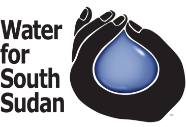Season Update
As the 2021-22 operating season quickly comes to a close, we're thrilled to announce the team's annual accomplishments and exciting new collaborations, including projects with UNICEF, Norwegian Church Aid, and The Carter Center.
Our partnership with UNICEF has been a comprehensive 9-month water, sanitation, and hygiene (WASH) project (read about the partnership here). The Norwegian Church Aid collaboration consisted of WFSS drilling and rehabilitating 14 total wells. The team also drilled and rehabilitated wells in guinea worm endemic areas with funding from The Carter Center. Providing clean water in areas known to have even one case of guinea worm ensures that this terrible waterborne disease will not spread.
In total, these special collaborations mean better health and greater economic opportunities for vulnerable populations.
Work completed so far includes:
51 new wells drilled
72 wells rehabbed
Constructed 12 new emergency latrines in schools and health facilities
Rehabilitated 20 existing latrines in schools and health facilities
Trained 870 community members:
Training the water user committees is with focus on their roles in the management of community water sources and sustainability of the water points.
Trained water users are to play major roles in community mobilization to fence the water sources and prevent animals from stepping on the platform structures.
Water user committees are also tasked to sensitize their communities towards cost sharing of the maintenance of the water sources; especially motivating the trained village pump mechanics, when they repair a broken borehole.
Provided 291 community members with hygiene promotion training:
Trained community hygiene volunteers will take a leading role in community awareness/sensitization campaigns in coordination with water user committees in respective locations.
They conducted weekly hygiene awareness sessions and cleaning campaigns at water sources giving key hygiene messages to prevent common hygiene and sanitation related-disease including diarrhea and covid-19.
They also conduct household visits speaking to members on harmful attitudes and better approaches to maintain clean water chain link from transportation to storage facilities in the house to prevent contamination.
Trained 267 pump mechanics:
The remaining 18 village pump mechanics trained (9 female and 9 male), will be given 7 days on operations and maintenance including knowledge of India Mark II and Mark III parts.
The practical part will be field work to know the common problems related to breakdowns, repairs, and preventive maintenance of India Mark II and II hand pumps.
Representatives of trained village pump mechanics will be selected as part of water user committees, the committee members on cost sharing related to procurement hand pump spare parts.
WFSS Country Director Ajang “AJ” Agok noted the extreme dedication of the WFSS team in accomplishing these goals. “Our teams worked so very hard this year,” says AJ. “We are so pleased to have completed our projects with our new funding partners. We thank all the people across the U.S., and around the world, who support our work!”



